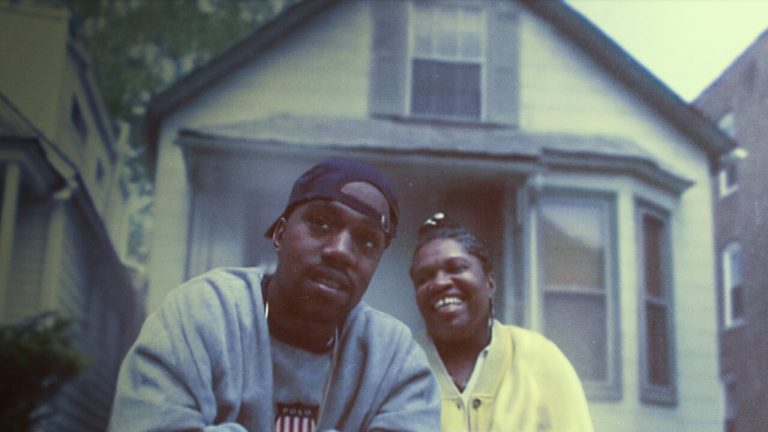LONG ALBUMS – Evening Standard, 10 May 2013
It’s time for music’s next evolutionary leap. The download era has not shattered our attention spans and brought in a pick-and-mix culture, as many anticipated. LPs are not dead — the long-player is growing longer than ever, and individual songs are following suit as the internet and our ever-expanding hard drives start allowing virtually unlimited space.
As I write this, I’m travelling to a gig by cult Swedish electronica duo The Knife and trying to absorb their new album, Shaking the Habitual, which, at 13 tracks and 96 minutes, is almost as long as the gig will be. It includes their comeback “single”, Full of Fire, more than nine minutes of malevolent clanks and howls that never expected radio airplay but caused an even bigger buzz online thanks to its uncompromising nature.
They’re far from alone in producing songs that can no longer be snacks. Classical symphonies and jazz jam sessions have always taken the long road, of course, but now more pop and rock acts are at it. It’s not a prog revival either, although both Rush and Steve Hackett of Genesis will be entertaining thousands at major London venues this month. It’s big, mainstream musicians including Justin Timberlake, Frank Ocean and Biffy Clyro, realising that they don’t have to keep things simple any more.
Pop music has been defined since its inception by the limits of its format. The “ideal” pop song has always been three minutes long because that was the best fit for a 45rpm single. CDs then restricted the album to just over an hour tops, if a band didn’t want to go to the expense of producing a second disc. A download, in contrast, has no such problems. That’s pushing some musicians to see what they can do with all that extra legroom.
Justin Timberlake’s new album is 80 minutes long with almost every song more than seven minutes long, and has been a huge sales success even so. “When we were making the record I said, ‘If Pink Floyd and Led Zeppelin can do 10-minute songs and Queen can do 10-minute songs then why can’t we?’” he said.
Biffy Clyro, just announced as the headline act at Radio 1’s Big Weekend in Londonderry later this month, sent their most recent album to number one at the start of this year — all 20 tracks of it. New albums by Steve Mason and Laura Marling feature 20 and 16 songs respectively, while even David Bowie managed 17 on The Next Day once the iTunes “deluxe” extras were taken into account.
Indeed, extra songs for an iTunes edition have become a standard add-on, a handy home for all that cutting-room floor music that once would have made a B-side or a rarity for the box set decades hence. And the box set itself, previously the preserve of middle-aged men with an extra wing in their houses to store them, can now be had at a click. How about everything AC/DC ever recorded for £99.99, just like that?
“I didn’t even think it would be that long, to be honest. But it just turned out so good that I kept it,” Kurt Vile has said about his new album, Wakin’ on a Pretty Daze. Its 11 songs add up to almost two hours of stoned, hazy, brilliant guitar music. It’s as good as he says. “It’s still in this weird way very pop-sensible but it’s also hypnotic and pretty and trance-y enough that you kind of forget how long it’s been playing.”
You Lust, the centrepiece of the trippy new Flaming Lips album, The Terror, is 13 minutes long and extremely lovely. “Songs started out being long, and this time they never went to being short. We thought, it’s gotta be long, that’s just part of its nature,” their singer Wayne Coyne told me recently. “There are tones and paces that let you listen to things for a while without being fatigued or bored or needing something else. We don’t always make music like this, so intuitive and impressionistic. You sometimes want to focus it but when it stays drifting, it’s cool.”
Frank Ocean, Grammy winner and the biggest R&B breakthrough of recent years, earned much of the hype surrounding him with his early song Pyramids — all 10 minutes of which he put online last summer and watched the awed word spread. It barely needed a radio edit, such was the level of attention it received on the internet. Why bother when people are now more likely to share it on YouTube or Soundcloud than hear it on Radio 1 or spot it on MTV?
There’s a giant caveat to all this, of course. Musicians hardly need much encouragement to become self-indulgent, believing every bum note they’ve recorded is worthy of mass appreciation. Editing is an essential skill, and just because an album has the potential to be three hours long doesn’t mean it should be. The greatest songs ever recorded don’t waste a note — that’s a harder claim to make when you and your band are roaming wild for a quarter of an hour.
Right now, though, I’m excited about all the widescreen, adventurous music that’s appearing in this open space. If a gig usually lasts two hours, and so does a film, while computer games take weeks, why should an album assume its audience can’t be absorbed for more than 45 minutes? How about the album as music’s equivalent of the high quality television box set, building its themes in increments?
It’s certainly a possibility. We’ve all sometimes felt that a song is so good that we never want it to end. Soon that could really happen.
